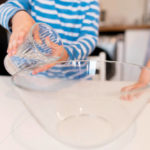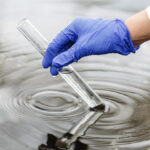Clean and safe drinking water is vital for maintaining good health. If you rely on a water tank as your main source of water, it’s crucial to ensure that the tank is clean and free from contaminants. In this blog post, we will explore the factors that influence the frequency of cleaning water tanks and provide guidelines to help you determine how often you should clean your water tank.
Factors Influencing Water Tank Cleaning Frequency
When it comes to cleaning your water tank, several factors come into play:
1. Usage and Water Storage
Residential and commercial water tanks differ in their usage and storage capacity. The more people relying on a tank and the larger its storage capacity, the more frequently it should be cleaned.
2. Water Source and Quality
The source of your water and its quality also affect tank cleanliness. If you collect rainwater, it may require additional cleaning due to potential contaminants. Similarly, water supplied by the municipality might have its own set of concerns. Monitoring the quality of the water going into your tank is crucial.
Guidelines for Determining Cleaning Frequency
To determine how often you should clean your water tank, consider the following guidelines:
1. Regular Inspections and Maintenance
Regularly inspect your water tank for signs of contamination and debris. Look out for algae growth, dirt, and other visible impurities. If you notice any issues, it’s time to clean your tank.
2. Water Usage and Consumption Patterns
Take into account your household’s water usage patterns. If you consume a significant amount of water daily, your tank may need more frequent cleaning compared to a household with lower water consumption.
3. Environmental Factors
Environmental conditions also impact tank cleanliness. Factors such as temperature, humidity, and nearby vegetation can contribute to the growth of bacteria and algae in your tank. Monitor these conditions and adjust your cleaning frequency accordingly.
4. Specific Tank Types and Storage Systems
Different types of water tanks require varying cleaning frequencies. For example, cold water storage tanks and rainwater tanks have their specific considerations. Additionally, regularly checking tank lids and using water filters can help maintain cleaner water storage.
Best Practices for Water Tank Cleaning
Follow these best practices when cleaning your water tank:
1. Cleaning Methods and Techniques
Ensure a thorough cleaning process by using appropriate methods and techniques. Consider employing a high-performance vacuum pump to effectively remove sludge and contaminants from your tank.
2. Dealing with Contaminated Water and Algae Growth
Contaminated water and algae growth pose risks to your water quality. Treat your tank with sodium hypochlorite or other suitable water treatment methods to eliminate bacteria and algae.
3. Risk Assessment and Professional Help
Conduct a risk assessment to determine if you require professional assistance for tank cleaning. If you’re unsure about the process or face significant challenges, seek help from experienced professionals.
Regular Maintenance and Prevention Strategies
To maintain clean water storage, follow these preventive measures:
1. Tips for Regular Tank Maintenance
Regularly inspect your tank for bottom sediment and organic matter. These can contribute to bacterial growth and compromise water quality. Cleaning your tank when needed will help keep it in good condition.
2. Preventive Measures for Clean Water Storage
Preventing bacteria growth and debris accumulation is crucial. Install appropriate filters and conduct regular checks on your water system. This will aid in maintaining clean and healthy water for your household.
Conclusion
Ensuring a clean water tank is essential for safeguarding your health. By considering factors like water usage, environmental conditions, and specific tank requirements, you can determine the appropriate cleaning frequency. Regular inspections, proper maintenance, and preventive measures will help keep your water tank clean and provide you with safe and healthy drinking water.





